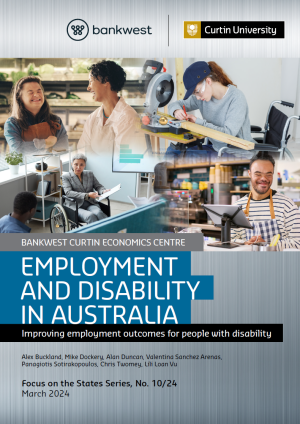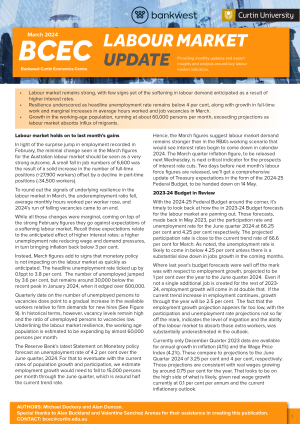Publications
Search results for
Author: Michael DockeryX
Re-imagining the future for desert Australia
 Desert regions of the world comprise about 25% of the world’s land surface and are home to 500 million people, yet are often portrayed as extreme places with resident communities marginalised from mainstream development. Australia has a relatively vast desert... Read article
Desert regions of the world comprise about 25% of the world’s land surface and are home to 500 million people, yet are often portrayed as extreme places with resident communities marginalised from mainstream development. Australia has a relatively vast desert... Read article
 Desert regions of the world comprise about 25% of the world’s land surface and are home to 500 million people, yet are often portrayed as extreme places with resident communities marginalised from mainstream development. Australia has a relatively vast desert... Read article
Desert regions of the world comprise about 25% of the world’s land surface and are home to 500 million people, yet are often portrayed as extreme places with resident communities marginalised from mainstream development. Australia has a relatively vast desert... Read article
Far removed: an insight into the labour markets of remote communities in central Australia
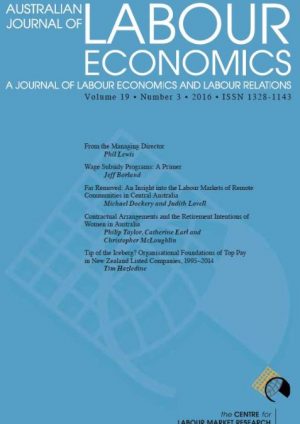 There are ongoing debates about the livelihoods of Aboriginal and Torres Strait Islander Australians living in remote communities, and the role for policy in addressing socio-economic equity and the economic viability of those communities. The characteristics and dynamics of remote... Read article
There are ongoing debates about the livelihoods of Aboriginal and Torres Strait Islander Australians living in remote communities, and the role for policy in addressing socio-economic equity and the economic viability of those communities. The characteristics and dynamics of remote... Read article
 There are ongoing debates about the livelihoods of Aboriginal and Torres Strait Islander Australians living in remote communities, and the role for policy in addressing socio-economic equity and the economic viability of those communities. The characteristics and dynamics of remote... Read article
There are ongoing debates about the livelihoods of Aboriginal and Torres Strait Islander Australians living in remote communities, and the role for policy in addressing socio-economic equity and the economic viability of those communities. The characteristics and dynamics of remote... Read article
Aboriginal assets? The impact of major agreements associated with native title in Western Australia
 Agreements negotiated under the regime created by the Native Title Act (1993) are often seen as having the potential to address disadvantage faced by Aboriginal and Torres Strait Islander Australians and promote Aboriginal economic independence. This applies particularly to regional... Read article
Agreements negotiated under the regime created by the Native Title Act (1993) are often seen as having the potential to address disadvantage faced by Aboriginal and Torres Strait Islander Australians and promote Aboriginal economic independence. This applies particularly to regional... Read article
 Agreements negotiated under the regime created by the Native Title Act (1993) are often seen as having the potential to address disadvantage faced by Aboriginal and Torres Strait Islander Australians and promote Aboriginal economic independence. This applies particularly to regional... Read article
Agreements negotiated under the regime created by the Native Title Act (1993) are often seen as having the potential to address disadvantage faced by Aboriginal and Torres Strait Islander Australians and promote Aboriginal economic independence. This applies particularly to regional... Read article
Culture, housing, remoteness and Aboriginal and Torres Strait Islander child development.
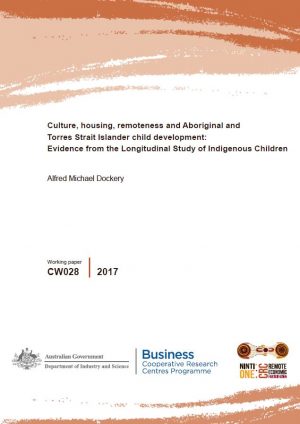 The limited empirical evidence available in Australia points to beneficial effects of Aboriginal and Torres Strait Islander peoples’ identification with their culture across a range of outcome domains. Living in remote communities, with limited mainstream economic opportunity, services and infrastructure... Read article
The limited empirical evidence available in Australia points to beneficial effects of Aboriginal and Torres Strait Islander peoples’ identification with their culture across a range of outcome domains. Living in remote communities, with limited mainstream economic opportunity, services and infrastructure... Read article
 The limited empirical evidence available in Australia points to beneficial effects of Aboriginal and Torres Strait Islander peoples’ identification with their culture across a range of outcome domains. Living in remote communities, with limited mainstream economic opportunity, services and infrastructure... Read article
The limited empirical evidence available in Australia points to beneficial effects of Aboriginal and Torres Strait Islander peoples’ identification with their culture across a range of outcome domains. Living in remote communities, with limited mainstream economic opportunity, services and infrastructure... Read article
Sole-parent work schedules and adolescent wellbeing
 Extensive evidence has shown that working nonstandard hours, such as evening or night shifts, impacts negatively on workers’ own health, and a growing literature suggests such impacts extend to the health of workers’ children. Using matched parent and child data... Read article
Extensive evidence has shown that working nonstandard hours, such as evening or night shifts, impacts negatively on workers’ own health, and a growing literature suggests such impacts extend to the health of workers’ children. Using matched parent and child data... Read article
 Extensive evidence has shown that working nonstandard hours, such as evening or night shifts, impacts negatively on workers’ own health, and a growing literature suggests such impacts extend to the health of workers’ children. Using matched parent and child data... Read article
Extensive evidence has shown that working nonstandard hours, such as evening or night shifts, impacts negatively on workers’ own health, and a growing literature suggests such impacts extend to the health of workers’ children. Using matched parent and child data... Read article
Does private schooling pay? Evidence and equity implications for Australia
 How effectively different schools prepare young people for future social and economic engagement has important implications for education practice, funding allocations and social equity, as well as for parental decision making. This paper uses data from waves 2001-2014 of the... Read article
How effectively different schools prepare young people for future social and economic engagement has important implications for education practice, funding allocations and social equity, as well as for parental decision making. This paper uses data from waves 2001-2014 of the... Read article
 How effectively different schools prepare young people for future social and economic engagement has important implications for education practice, funding allocations and social equity, as well as for parental decision making. This paper uses data from waves 2001-2014 of the... Read article
How effectively different schools prepare young people for future social and economic engagement has important implications for education practice, funding allocations and social equity, as well as for parental decision making. This paper uses data from waves 2001-2014 of the... Read article
Are there institutional differences in the earnings of Australian higher education graduates?
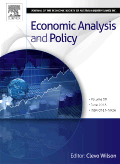 This paper examines the effect of university quality, as proxied by institutional groupings, on the earnings outcomes of Australian university qualified persons. It uses data from the Household, Income and Labour Dynamics in Australia (HILDA) survey to examine the impact... Read article
This paper examines the effect of university quality, as proxied by institutional groupings, on the earnings outcomes of Australian university qualified persons. It uses data from the Household, Income and Labour Dynamics in Australia (HILDA) survey to examine the impact... Read article
 This paper examines the effect of university quality, as proxied by institutional groupings, on the earnings outcomes of Australian university qualified persons. It uses data from the Household, Income and Labour Dynamics in Australia (HILDA) survey to examine the impact... Read article
This paper examines the effect of university quality, as proxied by institutional groupings, on the earnings outcomes of Australian university qualified persons. It uses data from the Household, Income and Labour Dynamics in Australia (HILDA) survey to examine the impact... Read article
Remittances and happiness of migrants and their home households
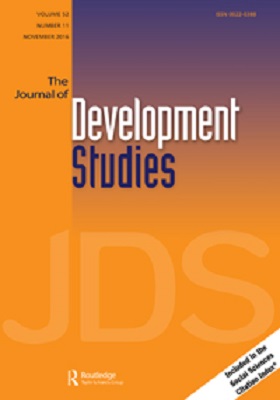 This paper explores how remittances influence happiness among migrants and their households of origin. It is based on a novel data set of matched samples of Bangladeshi migrant households (living in the UK and Malaysia) and their origin families in... Read article
This paper explores how remittances influence happiness among migrants and their households of origin. It is based on a novel data set of matched samples of Bangladeshi migrant households (living in the UK and Malaysia) and their origin families in... Read article
 This paper explores how remittances influence happiness among migrants and their households of origin. It is based on a novel data set of matched samples of Bangladeshi migrant households (living in the UK and Malaysia) and their origin families in... Read article
This paper explores how remittances influence happiness among migrants and their households of origin. It is based on a novel data set of matched samples of Bangladeshi migrant households (living in the UK and Malaysia) and their origin families in... Read article
Occupational segregation and women’s job satisfaction
 Data on men and women’s job satisfaction conditional upon the degree of feminisation of their occupation are used to explore potential causes and implications of occupational segregation by gender in the Australian labour market. We find some evidence for the... Read article
Data on men and women’s job satisfaction conditional upon the degree of feminisation of their occupation are used to explore potential causes and implications of occupational segregation by gender in the Australian labour market. We find some evidence for the... Read article
 Data on men and women’s job satisfaction conditional upon the degree of feminisation of their occupation are used to explore potential causes and implications of occupational segregation by gender in the Australian labour market. We find some evidence for the... Read article
Data on men and women’s job satisfaction conditional upon the degree of feminisation of their occupation are used to explore potential causes and implications of occupational segregation by gender in the Australian labour market. We find some evidence for the... Read article
Securing our Future
 Western Australia’s population is growing older. The median age of West Australians is set to increase from 36 years today to 40 years by 2050. During that time the proportion of West Australians aged 65 and over is projected to... Read article
Western Australia’s population is growing older. The median age of West Australians is set to increase from 36 years today to 40 years by 2050. During that time the proportion of West Australians aged 65 and over is projected to... Read article
 Western Australia’s population is growing older. The median age of West Australians is set to increase from 36 years today to 40 years by 2050. During that time the proportion of West Australians aged 65 and over is projected to... Read article
Western Australia’s population is growing older. The median age of West Australians is set to increase from 36 years today to 40 years by 2050. During that time the proportion of West Australians aged 65 and over is projected to... Read article
The influence of gender on pathways into the labor market
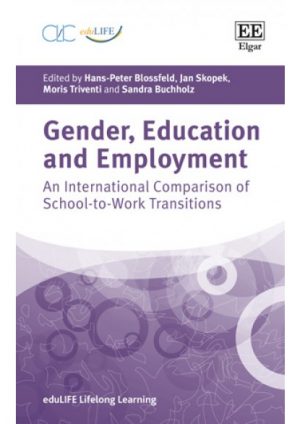 Chapter 4: Developments in the education system and the labor market along with legislative changes over the last decades have given rise to expectations of decreasing gender inequality. First, women’s increased educational attainment, relative to that of men, is expected... Read article
Chapter 4: Developments in the education system and the labor market along with legislative changes over the last decades have given rise to expectations of decreasing gender inequality. First, women’s increased educational attainment, relative to that of men, is expected... Read article
 Chapter 4: Developments in the education system and the labor market along with legislative changes over the last decades have given rise to expectations of decreasing gender inequality. First, women’s increased educational attainment, relative to that of men, is expected... Read article
Chapter 4: Developments in the education system and the labor market along with legislative changes over the last decades have given rise to expectations of decreasing gender inequality. First, women’s increased educational attainment, relative to that of men, is expected... Read article
The Impact of Children on Australian Couples’ Wealth Accumulation
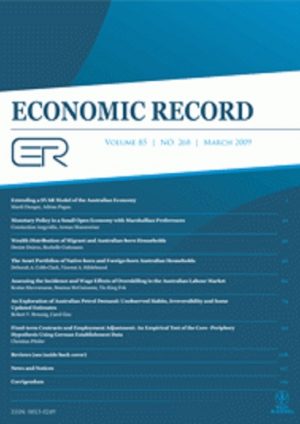 Existing estimates of the cost of children focus on what parents spend on their children, which has limited relevance to parents’ financial capacity to meet those costs. An alternative indicator of the affordability of children, their impact upon couples’ wealth... Read article
Existing estimates of the cost of children focus on what parents spend on their children, which has limited relevance to parents’ financial capacity to meet those costs. An alternative indicator of the affordability of children, their impact upon couples’ wealth... Read article
 Existing estimates of the cost of children focus on what parents spend on their children, which has limited relevance to parents’ financial capacity to meet those costs. An alternative indicator of the affordability of children, their impact upon couples’ wealth... Read article
Existing estimates of the cost of children focus on what parents spend on their children, which has limited relevance to parents’ financial capacity to meet those costs. An alternative indicator of the affordability of children, their impact upon couples’ wealth... Read article

